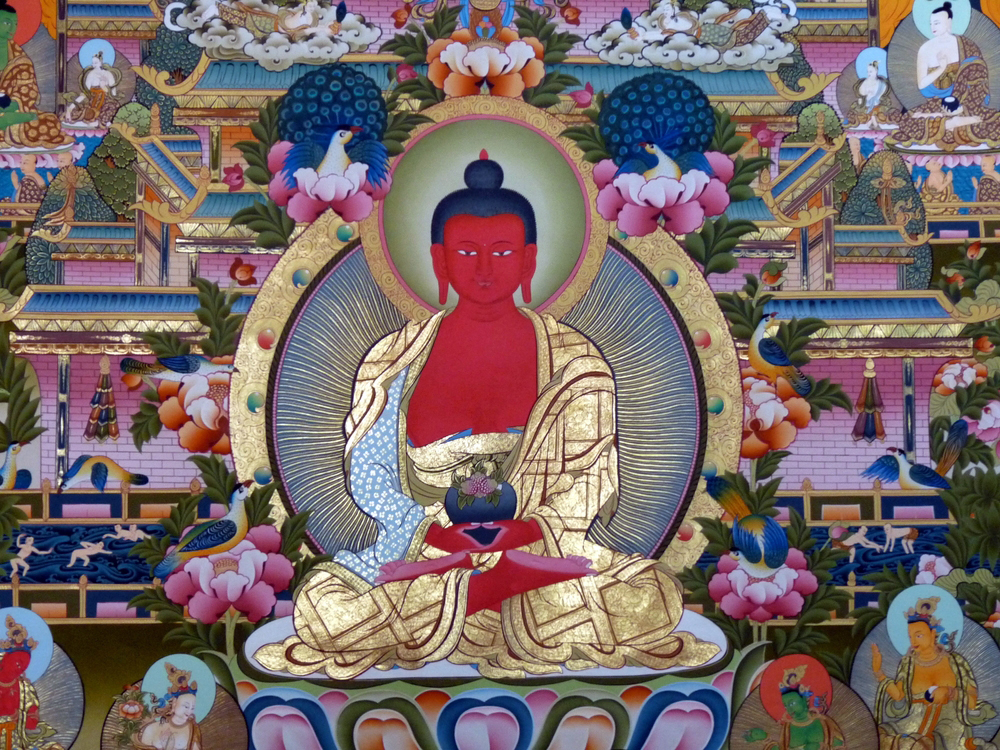The Paramitas
The six Paramitas not only lead us out of suffering, they also bring us to enlightenment.
 ©
© shutterstock
The Six Paramitas are a set of linked Mahayana practices specifically aimed at furthering the path to Enlightenment. They are part of a set of ten but the last four relate to the later stages in the process. We are going to look at the first six.
They are: giving, restraint, patient endurance, energy, meditation and wisdom, or in Sanskrit; Dana, Sila, Kshanti Virya Dhyana Prajna.
Although they follow a sequence from Dana through to Prajna, they more importantly are practiced simultaneously, thus supporting each other very much like elements of the Noble Eightfold Path. Each of these Paramitas, also known as perfections, is to be fully realised, thus bringing to fruition the sixth, which is Wisdom. It is through the perfection of Wisdom that there is a falling away of delusion and a seeing things as they really are; empty and subject to change. The final four Paramitas that follow complete the training. Without these practices we remain in delusion.
I used to get a bus home after the evening sitting at the temple. In winter, after a hard day’s work and three periods of sitting I would be anxious to get home. Standing waiting with an icy cold wind blowing it was always such a relief to see the number 13 bus arriving. On one occasion the wait was rather long before the bus finally arrived. After sitting in the bus for some time I looked up and suddenly had a horrible sinking feeling. The sign in the bus was 113. I had got on the number 113 bus instead of the 13. I had been so anxious to catch the bus that I had been blind to the real number. This small example from daily life reflects how we are functioning on a deeper unconscious level. It’s not just about an emotional reaction to a difficult circumstance but a way of being in which our seeing is not clear. It is blinded and deluded by our wants and dislikes. We tend to see things as we want them to be rather than accept them as they are. This craving results in Dukkha, or dissatisfaction or suffering, the first Noble Truth.
The Paramitas are practices directed to the development of Enlightenment and are practices of Bodhisattvas. Bodhisattvas are beings like ourselves who vow to liberate all sentient beings before liberating themselves. It is important to note that this is a vow, meaning we won’t always succeed, but we apply ourselves with the vow in our heart to do our utmost. The Paramitas should be practiced in a way that we don’t feel we are doing something special but that they are just part of our daily life practice. Although initially they are practised intentionally, in time and with sincere application they become unconscious.
Paramita is also translated more literally as ‘Gone Beyond’ or ‘that which has reached the other shore’. The delusion of ‘I’ is such that I wish to be the one who is ‘enlightened’. We cannot but help ourselves feel this way and have the notion that it will result in a self that is wiser, happier, better, more popular and so on. However, it is these very notions that need to be laid down, since I am these notions and just these notions, and nothing else. It cannot be emphasized enough that things or dharmas are empty of independent self-nature, are subject to dependant origination and are impermanent. Thinking as we do from a perspective of the delusion of ‘I’, when we hear about that ‘other side’ we imagine it to be somewhere very far away, hopefully not too far, and that one day there will be a moment when we will make a one-time journey to cross over and reach it and never return. It is, however, not so far away and is a place we already know. As Master Torei said, “The very place where one’s feet stand, this is the place of true insight into one's true nature.”
The Paramitas are also described as the Perfections. If we are to perfect something, this implies that it is not acquired but is a quality already present requiring development. We can give, restrain, endure, be energetic, be at one with what is and have moments of insight, all these things are there but they need to be strengthened and fulfilled. They are weak or incomplete because they are conditional to desire.
In other words, they are only carried out to a certain extent when I want them to be or when it suits me. They need to be developed to carry us through all circumstances and to be applied when appropriate. Otherwise, when circumstances are not as we favour them, we are miserly, fail to restrain ourselves, cannot endure discomfort, feel lethargic, disinterested or detached and function in ignorance, all of which result in suffering for all concerned
To be continued.




